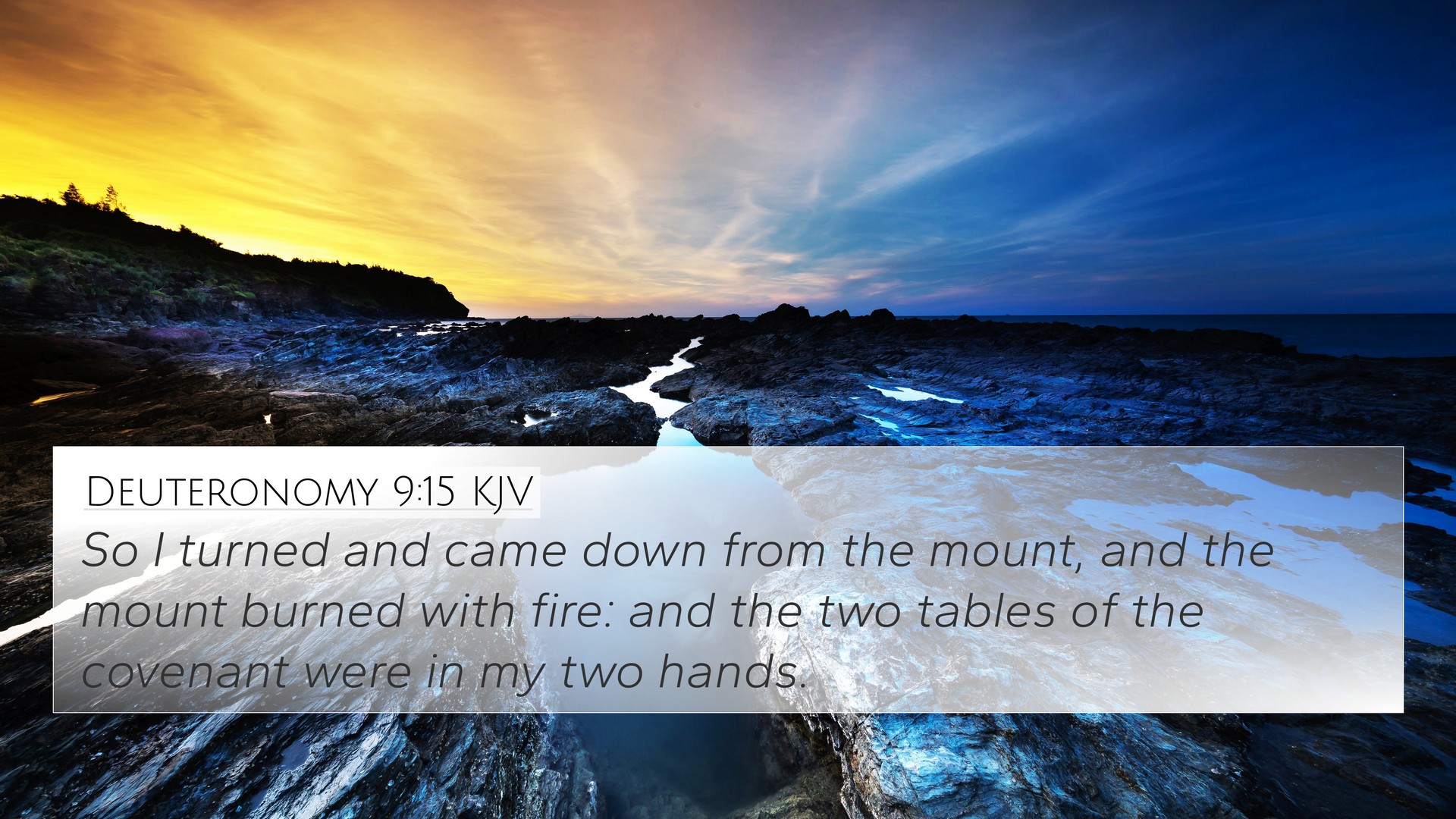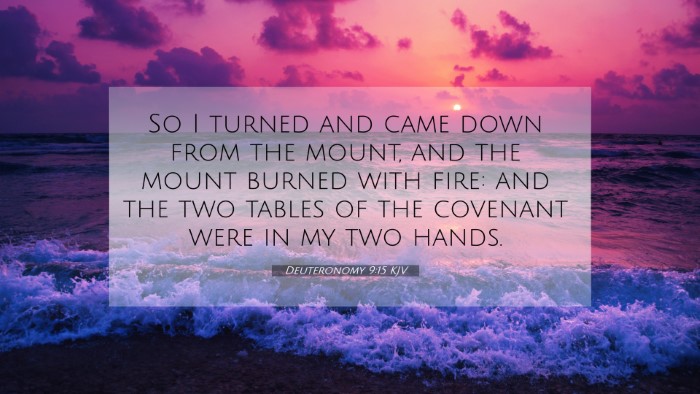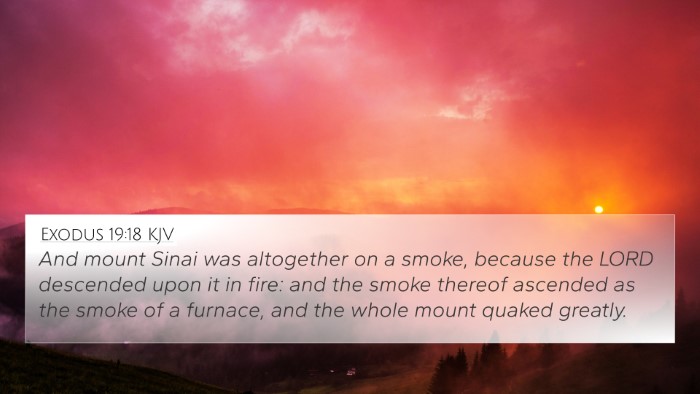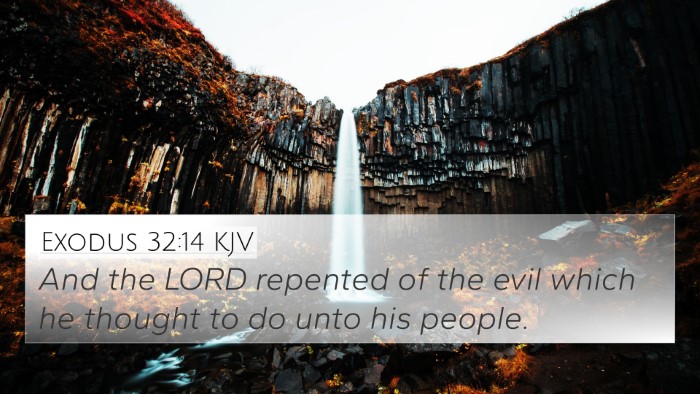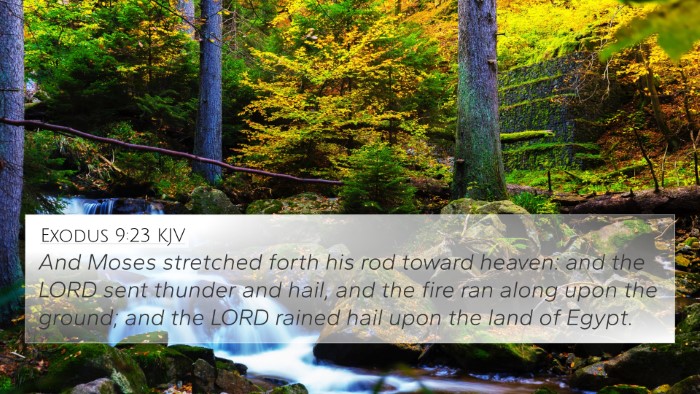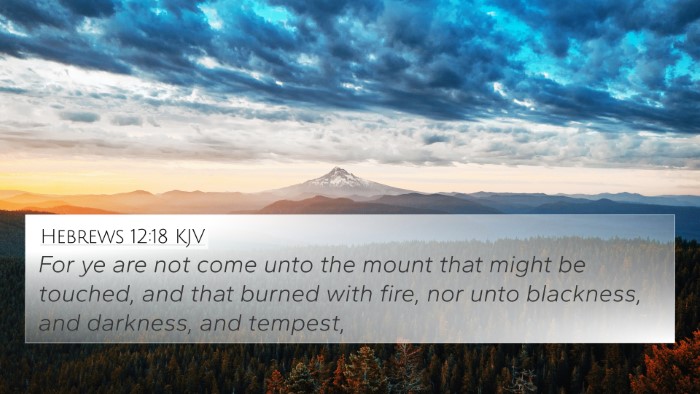Understanding Deuteronomy 9:15
Deuteronomy 9:15 states:
"So I turned and came down from the mount, and the mount burned with fire; and the two tables of the covenant were in my two hands."
Meaning and Interpretation
This verse recounts a pivotal moment during the Israelites' journey, reflecting God's judgment, Moses’ leadership, and the significance of the covenant relationship established between God and His people.
The Context of the Verse
In the wider narrative, Moses describes his return from Mount Sinai after receiving the tablets of the Law. This moment is deeply symbolic, as the tablets represent the covenant between God and Israel, and their fiery context emphasizes the seriousness of the covenantal relationship.
Key Themes
- Covenantal Relationship: The two tablets symbolize the laws that bind the Israelites to their God.
- Divine Judgment: The mention of fire signifies God’s holiness and the judgment on Israel for their sinfulness.
- Moses’ Leadership: The act of descending from the mountain illustrates Moses as a mediator between God and His people.
Commentary Insights
Matthew Henry
Matthew Henry emphasizes the seriousness of receiving the Law. He notes that Moses’ descent from the mountain is filled with urgency; he carries the Law as a testimony of the nation’s obligations to God. The burning mountain signifies God's presence and the consuming nature of His holiness, contrasting human frailty.
Albert Barnes
Albert Barnes highlights that the fiery descent illustrates not only God’s wrath but also His love, as He provides the Law for guidance. Barnes notes the importance of the tablets, not merely as stones but as the foundation of Israel's national identity and religious life.
Adam Clarke
Adam Clarke focuses on the physical and spiritual implications of the tablets. He suggests that the fire symbolizes purification through suffering and divine presence. Clarke underscores the covenant as central to Israel, reflecting their intimate relationship with God.
Cross References
This verse connects with several other passages that enhance its meaning:
- Exodus 19:18: Describes the fire and smoke upon Mount Sinai, symbolizing God's holiness.
- Exodus 34:28: Further detail on the writing of the tablets and their significance.
- Deuteronomy 4:13: Emphasizes that God declared His covenant with the Israelites through His laws.
- Hebrews 12:29: "For our God is a consuming fire," linking to the divine nature seen in the burning mountain.
- Psalms 105:8-10: Reminds us of the importance God places on His covenant with Israel.
- Romans 3:20: Relates the purpose of the Law in defining sin, showing the implications of the covenant.
- Galatians 3:19: Discusses why the Law was given, connecting to its role in the covenant.
Why Cross-Referencing is Important
Cross-referencing Bible verses is vital for comprehensive understanding of scripture. It allows for:
- Enhanced Interpretation: Understanding the depth and context of verses.
- Thematic Connections: Identifying broader biblical themes and narratives.
- Scriptural Dialogue: Discovering the interconnectedness of various biblical texts.
How to Use Cross-References
To effectively cross-reference, consider the following tools and methods:
- Bible Concordance: A tool for locating where specific words or themes appear in scripture.
- Bible Cross-Reference Guide: Useful for finding immediate connections related to specific verses.
- Bible Study Groups: Engaging with others can open up new insights through collective discussion.
- Topical Studies: Focusing on specific themes can highlight relevant connections across different scriptures.
Conclusion
Deuteronomy 9:15 invites readers into a deeper understanding of the covenant relationship between God and His people. The insights from biblical commentaries help underline the significance of this verse, while cross-referencing creates avenues for exploration of related themes and scriptures. This verse serves as a reminder of the divine obligations and the weight of God’s Law that the Israelites carried, guiding their identity as a people chosen by God.
